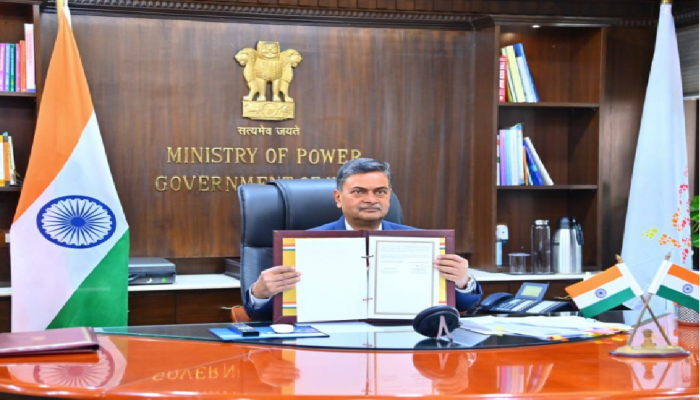India and also Australia to team up on solar manufacturing, implementation by means of letter of intent

A letter of intent (LOI) was signed between both nations with the stated purpose of scaling-up residential manufacturing and release levels in both regions along with supporting the advancement of clean hydrogen and also other renewables innovations.
It was signed during the 4th 'India-Australia Energy Dialogue' that was gone to by Indian Minister for New and also Renewable Resource (MNRE), RK Singh, and also Australian Minister for Energy as well as Emissions Reduction, Angus Taylor.
They settled on an action plan that consists of locations such as energy efficiency modern technologies, grid monitoring, R&D collaboration on flue gas desulphurisation, biomass or hydrogen co-firing, water cycle optimisation, renewables combination, batteries as well as electrical movement, according to a MNRE declaration.
"This LOI will lead the way for functioning towards decreasing the price of new and also renewable resource modern technologies and also scaling up implementation in order to speed up global emissions reduction," it added.
"Partnership will focus on tangible activities and also projects including the manufacture and deployment of ultra low-cost solar and also clean hydrogen," said a statement by the Australian Federal government.
The MNRE statement, which was much more detailed in its summary of the conversation, additionally noted exactly how the nations would look to work together on "coal-based energy protection and also source release" and investment opportunities in the minerals market along with exploring the potential for an LNG partnership.
Ramping up of domestic PV production has been a key objective of Indian policy just recently, with the MNRE open about its need to minimize the nation's dependence on China amid geopolitical tensions between the world's 2 most heavily populated countries.
India's spending plan announcement at the start of the month saw a quadrupling of financing for the country's Production Linked Incentive (PLI) system, developed to stimulate domestic PV production, and the charge of a Basic Personalizeds Duty (BCD) of 25% on solar PV cells and also 40% on solar PV components, targeted at making Chinese solar imports less attractive.





